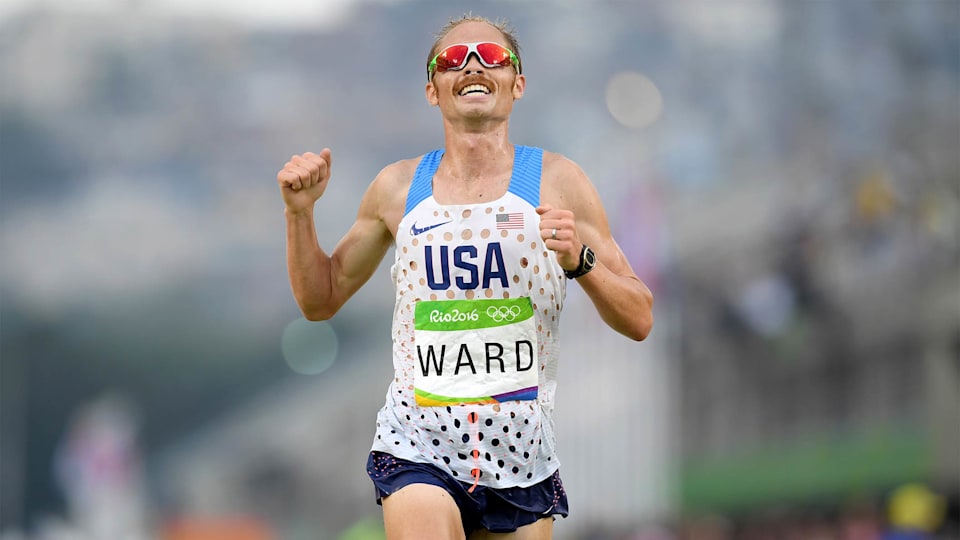Day Jobs: The statistician pacing his way to marathon success in Tokyo
American long-distance runner Jared Ward is used to testing both his body and mind to the limits of their potential. When not training for his next marathon, the Olympian teaches statistics at Brigham Young University (BYU) in Utah. Ward says juggling his academic and sporting commitments with those to his family can feel like a “balancing act”, but it is a wholly enjoyable one. “Sometimes it just feels like I’m blessed with a day full of doing things I love,” he enthuses.

Athlete and academic
Ward chose to study at BYU precisely because of its reputation as a hotbed of athletics. His decision to focus on statistics was almost an after-thought.
"When I went to BYU, as an athlete they required me to put down what my major was going to be. I said: 'Well, let's put down statistics and see what happens.'"
It may have been a random choice at the time, but Ward believes that being a statistician directly informs his performance as an athlete. "My two worlds have combined… and [statistics] fuel the decisions I make, how I train, and race strategies."
When he finished his undergraduate studies, the statistics department asked him to take on a part-time teaching role, and he has not looked back.
Pacesetter
He went on to complete a Master's degree in statistics in 2015, writing a thesis on the importance of pacing in marathon running. His conclusion – one that he applies to his own races – was that runners whose pace was consistent produced better results than those whose pace fluctuated.
His students can testify to the "added value" that the merging of their tutor's two worlds brings to the classroom.
"He's all about getting to the finish," says one. "About getting an A. It's about finishing strong because he likes to finish strong as well."
Working with professional coaches at BYU, and able to access the latest sports science technology, Ward has been able to adopt a highly scientific approach to his own training. For example, biomechanical analyses allow him to identify which muscle groups need to be strengthened to attain maximum performance.
Long road to success
Ward ran his first timed mile in the third grade at school, but it was at BYU where his potential as a marathon runner was first recognised. Running middle-distance races for the BYU Cougars, he was earmarked by his coach Ed Eyestone – a two-time Olympic marathon runner – as a long-distance specialist.
"My first marathon was hard. My peripheral vision started to go. I learned about fuelling and pacing so I could go into the next marathon and try a few more things."
Ward turned professional in 2014, finishing second in the US Marathon Championships that same year. 2015 was his golden year, as he won both the USATF 25km and 20km titles to claim the overall marathon crown. He carried that form into 2016, finishing third in the Olympic trials to secure a place on the US team for Rio 2016.
Eyestone set him the goal of finishing in the top 10 in Rio and he rose to the challenge, finding a final burst of energy in the closing stages to finish sixth with a personal best time of 2:11:30.
"I remember talking to media shortly after and they were poking fun at me for being the most excited sixth-place finisher they'd ever seen at the Olympics," he recalls.
Tokyo calling
Ward is optimistic about his chances of making it to Tokyo 2020. "Hopefully I'll just get better year after year so that come 2020 I'll be a better marathoner than I am now," he says.
Until then, he plans to continue to cram his life full of the things he loves. "I wake up in the morning excited to run. Excited to study. Excited to teach. Excited for everything."
